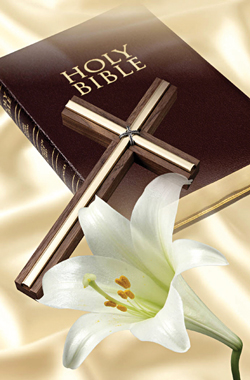 By: Paul P. Jesep*/TRT Columnist–
By: Paul P. Jesep*/TRT Columnist–
One of the most joyous events in the lives of two people is joining together in marriage. Increasingly, more LGBTQ couples are choosing to have their unions blessed or solemnized by ordained clergy. More faiths and denominations within those traditions embrace the holy, sacramental validity of two persons of the same-gender becoming committed spouses.
Wedding planning for same-gender couples is a big and growing business. Choosing the individual to perform the actual ceremony should be no less important than the careful selection of venue, guests, wedding planner, or the vows to be written and exchanged. Ordained clergy does not mean someone certificated for a fee through the mail or online.
Increasingly, LGBTQ couples are realizing there is a major difference between religion and belief in a higher authority. LGBTQ families that include children (people-children, independent of the furry kind) are grappling with whether to raise their kids in faith or a religion. Faith and religion will continue to play an expanding role in the LGBTQ experience.
Belief in God, defined gender neutral, is not interchangeable with the flaws and emotional abuses often associated with formal religion. Throughout history, individuals have co-opted religion to exploit and control others. These abuses reflect human insecurities, not holiness.
The growing acceptance of marriage equality by religious leaders and society’s acceptance is divine revelation. It’s Holy Sophia (Divine Wisdom) at work. God does not change. Over time, individuals and collective society spiritually matures, thus permitting the embrace of a larger, holier truth shown by Holy Sophia. This enables a deeper understanding of something larger than self-interest, connecting and gently integrating each person with the cosmos without quashing individuality.
Today, marriage has secular and religious meanings. Sometimes and understandably two people who join in marriage choose to focus on the secular. Others want the benefit of both – legal recognition and a blessing by someone who also embraces the union as transcending civil and secular law.
In January 2013, The Very Rev. Gary Hall, the Episcopal dean of Washington National Cathedral, announced same-gender Christian weddings would begin immediately at the Cathedral. According to Hall, “We enthusiastically affirm each person as a beloved child of God — and doing so means including the full participation of gays and lesbians in the life of this spiritual home for the nation.” This includes celebrating same-gender Christian marriages “in which the couple commits to lifelong faithfulness, love, forbearance and mutual comfort.” There isn’t anything the Pope, Rev. Pat Robertson, or any other opponent of marriage equality can do to stop it.
There is holiness in the solemnization of a marriage. It is a sacred act more powerful than bestowing an economic right when someone serves in a dual capacity of clergy person and government representative. This view does not, however, lessen the secular importance of marriage equality. Nor does it suggest the need for the approval or affirmation of clergy.
Two people who come together in secular marriage, holy matrimony, or both, answer to one another, their individual consciences, and if they believe in a higher power, then to the Creator as well. In each case, the selection of a celebrant to perform the marriage merits special consideration. If there is a spiritual element, the choice is especially important since it highlights the sacredness of the ceremonial act and commitment to one another in the eyes of a universal, holy and divine presence.
*Paul is an author, attorney, and a seminary trained, ordained priest in greater Albany, NY. He recently authored “Lost Sense of Self & the Ethics Crisis – Learn to Live and Work Ethically,” and is founder of www.CorporateChaplaincy.biz.”






